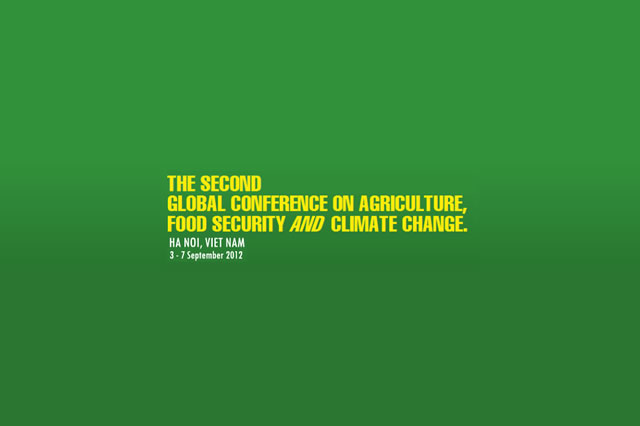The Second Global Conference on Agriculture, Food Security and Climate Change took place in Hanoi, Vietnam from 3 – 7 September. The conference was co-organised by Vietnam and the Netherlands in collaboration with the FAO and the World Bank. Mary Robinson
The Second Global Conference on Agriculture, Food Security and Climate Change took place in Hanoi, Vietnam from 3 – 7 September.
The conference was co-organised by Vietnam and the Netherlands in collaboration with the Food and Agriculture Organisation (FAO) and the World Bank and focussed on three key objectives: the need to scale-up the implementation of climate-smart agriculture; the need to establish early action plans to identify and scale up best practice; and the critical need to promote a landscape or integrated approach that addresses the linkages between agriculture, land and sustainable forest management.
In a keynote speech delivered by video message on the opening day of the conference, Foundation President, Mary Robinson, urged delegates to take a step back from ‘conference speak’ and explore the themes of the conference through the eyes of a smallholder farmer:
“What are the needs of a smallholder farmer in Bangladesh whose rice crop cannot survive in the salinated water of recurrent floods? Is it access to new strains of rice? Where will he or she find information about these? How does he or she access the credit to purchase the seeds?… Any approach that seeks to address the multi-faceted challenges posed by climate change to agriculture and food security must begin with a people-centred approach. It is only by looking at these issues from the perspective of a smallholder farmer or a vulnerable household that you begin to understand what needs to be done. That is the human rights approach.”
Attended by over 500 practitioners, scientists, and representatives from civil society and the private sector, the conference produced the Hanoi Communiqué which called for responsible and cooperative action by all actors to address the rise in food prices through improved international coordination and the implementation of safety net programs and social protection networks to build resilience.
The communiqué also emphasised the need for private and public investment in agricultural research, extension services, training and services to enhance sustainable agriculture and respond to climate change. However, some delegates, mainly representatives of farmers’ organisations, were critical of the content of the communiqué and the process by which it was drafted.
The Hanoi Communiqué expressed the hope that the outcomes of the Second Global Conference on Agriculture, Food Security and Climate Change would contribute to international processes such as the Rio+20 follow-up process, the work of the Committee on World Food Security, as well as the climate change negotiations under the UNFCCC.


